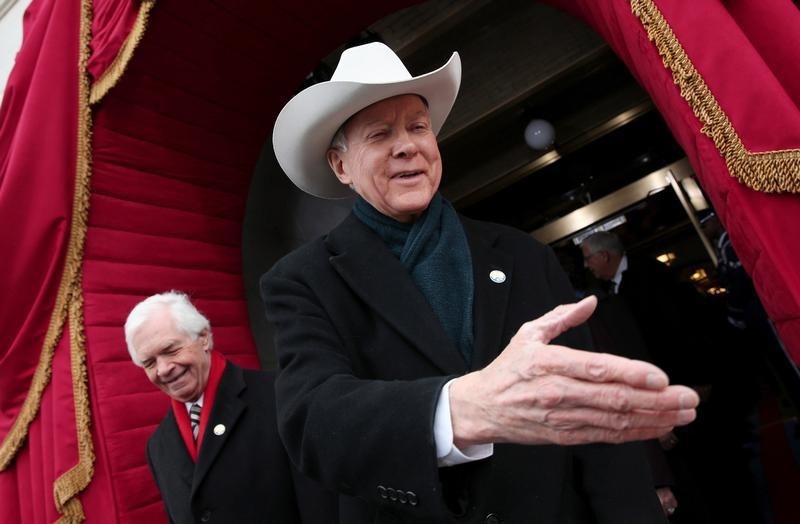By Roberta Rampton
WASHINGTON (Reuters) - A senior Republican in the U.S. Senate plans to revive legislation early in 2015 that would raise the cap for temporary work visas for programmers, engineers and high-skilled workers.
Utah Senator Orrin Hatch said his tech-focused bill could be a way for lawmakers to start to make progress on the polarizing issue of immigration reform.
Hatch's Immigration Innovation Act, I-Squared for short, would address chronic shortages of temporary visas used by the technology industry to fill jobs that they argue go unfilled because of a lack of qualified Americans.
"If we can do I-Squared, I think it would open the door to real, decent, honorable immigration reform itself," Hatch said in a telephone interview.
Republicans were enraged when President Barack Obama used his executive powers last month to lift the threat of deportation for as many as 4.7 million undocumented immigrants.
Obama said he was forced to act because Congress had failed to pass comprehensive immigration reforms.
Republicans will control both the Senate and House of Representatives in the new year. They have said they will try to undo some of Obama's measures.
But Hatch said he saw common ground between Republicans and Democrats for moving ahead on reforms for high-skilled visas, a more targeted approach than the broad comprehensive bill that the Senate passed last year, but the House failed to adopt.
"For too long, we've said 'Comprehensive or nothing,'" Hatch said in a telephone interview.
Hatch represents the tech-rich "Silicon Slopes" state of Utah, and regularly talks to tech moguls. This month, for instance, he met with Microsoft Chief Executive Satya Nadella and Apple CEO Tim Cook.
Hatch's bill was first introduced last year with Republican Marco Rubio and Democrats Amy Klobuchar and Chris Coons. The measures became part of the Senate's comprehensive bill.
Tech companies have been strong supporters of the comprehensive approach. But if they threw their heft behind his stand-alone bill, Hatch said it would pass.
"I think they need to call in the chips and say, 'OK: you said you're for us. Now prove it,'" Hatch said.
The path in the Senate will not be easy. The bill would need to attract enough support from Democrats to pass the 60-vote threshold.
Hatch said he expects his bill would face amendments from both sides of the aisle, but ultimately would pass.
"I think virtually every Republican would vote for this, and I suspect that we'll get a considerable number of Democrats too," he said.

(This story corrects paragraph 10 to show Tim Cook is CEO of Apple, not Google)
(Reporting by Roberta Rampton; Editing by David Gregorio)